History
Timeline
2010
2013
2015
2016
2018
2019
2017-2022
2010
End Water Poverty campaigned for the United Nations General Assembly to explicitly recognise water and sanitation as a human right. Ahead of the assembly the coalition demonstrated its ability to coordinate cross-continental collective action, mobilising a record-breaking 100,000 people in 80 different countries to form the world’s longest toilet queue on World Water Day (22 March).
2013
End Water Poverty presented a petition with over one million signatures to the United Nations Deputy Secretary General calling for a Sustainable Development Goal (SDG) dedicated to water and sanitation. Two years later, 193 countries pledged to ‘ensure availability and sustainable management of water and sanitation for all’ when they adopted SDG 6.
2015
End Water Poverty joined Amnesty International and others in successfully advocating for water and sanitation to be recognised as standalone rights.
2016
End Water Poverty mobilised civil society organisations in over 30 countries to participate in the inaugural Water Action Month.
2018
End Water Poverty and its partners published a global study assessing the effectiveness of different national accountability mechanisms in upholding people’s human rights to water and sanitation.
2019
(International Human Rights Day) End Water Poverty launched Claim Your Water Rights: a global public pressure campaign. In the first phase of the campaign End Water Poverty provided mini-grants to 26 different members in 14 countries. These members employed diverse strategies to secure tangible results: from legal reform to influencing governments’ COVID-19 responses, from infrastructure improvements to numerous communities in multiple countries successfully claiming their rights.
2017-2022
Five Year Strategy.
Claim Your Water Rights original campaign strategy
World Walks for Water
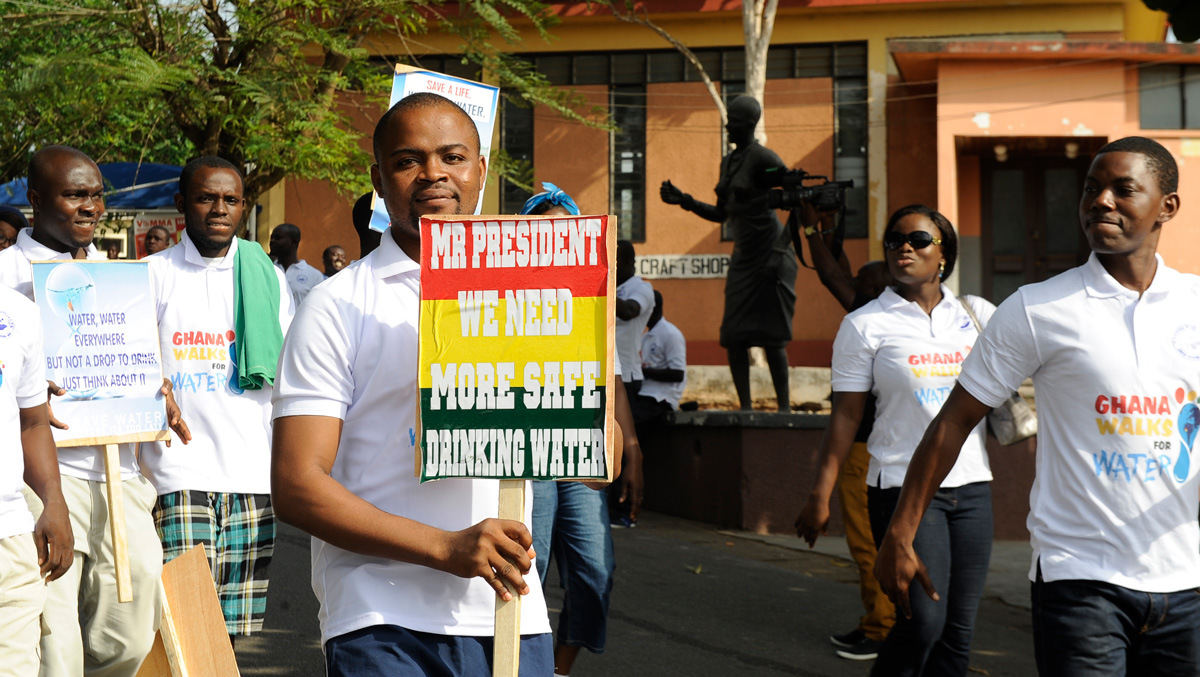
From 2011-2015 End Water Poverty held World Walks for Water on World Water Day (22 March) to demand governments fulfil the human rights to water and sanitation. The walks were among the largest global mobilisations for universal water and sanitation access. In 2015, 455,000 activists, schoolchildren and communities from 35 countries across Africa, Asia, the Americas and Europe took to the streets with many members securing meetings with decision-makers as a result.
Water Action Month
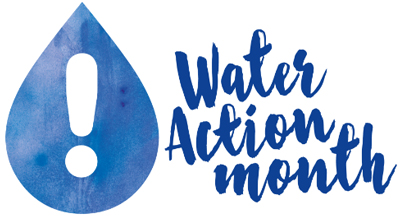
In 2016 End Water Poverty expanded the World Walks for Water mobilisations to a month-long campaign. Held throughout March, Water Action Month encouraged members to take creative actions to focus public and political attention on the water and sanitation crisis.
Members from 30 countries representing all of End Water Poverty’s regional constituencies participated in the inaugural Water Action Month, organising workshops, hygiene provision, parliamentary meetings, social media campaigns, and walks for water. While Water Action Month successfully connected members under one umbrella campaign and showcased an array of activities, members reported that one month was not enough time to conduct effective advocacy.
Water Action Month was last held in 2020 but was curtailed because of local or national outbreaks of COVID-19. Many members were forced to postpone or cancel activities, highlighting the precarity of concentrating the coalition’s global advocacy into a single month of action and validating the creation of a year-long public pressure campaign: Claim Your Water Rights.
Global review of SDG 6
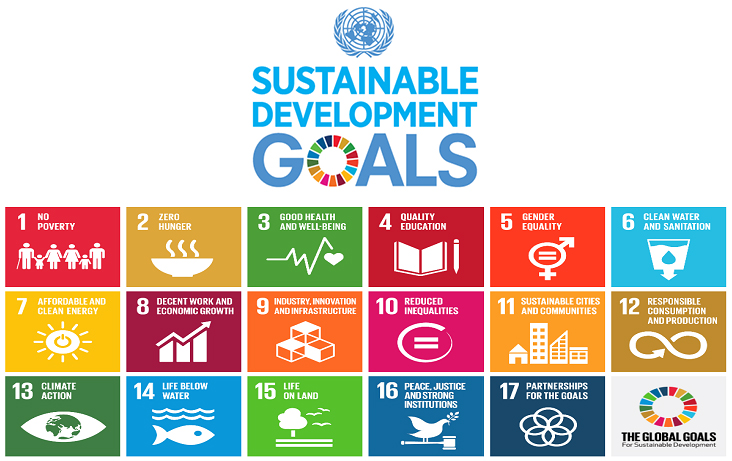
In March 2018 Coalition Eau, End Water Poverty, Watershed and the Water Supply and Sanitation Collaborative Council (WSSCC) published a global study assessing the effectiveness of national accountability mechanisms in upholding people’s human rights to water and sanitation.
The study was based on more than 1,000 survey responses, interviews and meetings with governments, civil society, development partners, UN agencies, research and education institutions, and think tanks.
End Water Poverty and its partners continue to use the study to understand the limitations – and potential – of various national accountability mechanisms. The study found that we have the tools, frameworks and, in some countries, the legislation to hold governments accountable – we just don’t always use them. Following publication, many EWP members expressed interest in practically implementing the human rights to water and sanitation at national and local level. The study thus provided the evidence-base and rationale for Claim Your Water Rights, a campaign that would test these national accountability mechanisms.
Stand Up for Water
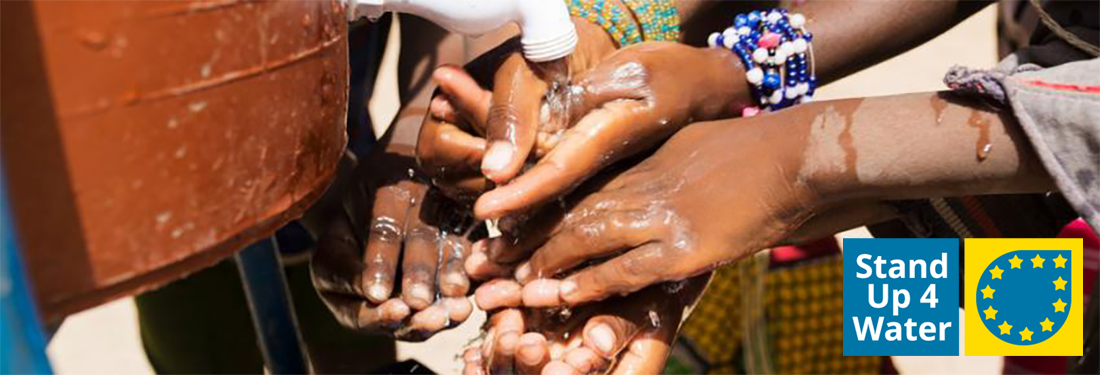
Ahead of the 2019 European Parliament elections End Water Poverty, WaterAid and the European Pact for Water urged candidates to Stand Up 4 Water. In a manifesto published in English and French, we called on candidates to adopt a three-point pledge to:
- Make water and sanitation a political priority on the EU agenda by adopting ambitious legislation, and explicitly including water and sanitation in the mandate of future European Commissioners;
- Invest in water and sanitation infrastructure, governance and management in Europe and beyond;
- Ensure water and sanitation policies and programmes adhere to human rights standards and principles, while incorporating water and sanitation in the EU’s health, nutrition, food security, education, and climate adaption policies and programmes.
200 candidates signed the pledge, 45 candidates of which were elected to the European Parliament.
Government, Pay Your Water Bills!
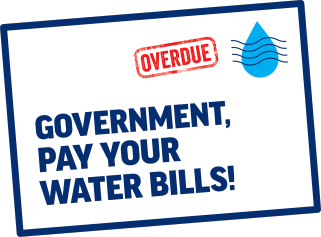
In 2020 End Water Poverty and Water Integrity Network (WIN) led a global evidence-based advocacy campaign Government, Pay Your Water Bills! (GPYWB). A study by Solutions for Water Integrity and Management (SWIM) found that governments do not always adhere to the same rules that they expect household water users to follow, accruing debts that threaten utilities’ financial stability and thus underserved communities’ water rights.
GPYWB aimed to expose the accumulation of arrears among public institutions, raise this issue with policy-makers, and improve public institutions’ rate – and punctuality – of payment. The campaign was implemented in Ghana, Kenya, Mexico, Nepal and Zambia with members adopting different approaches.
Water Citizens Network’s public interventions compelled Ghana’s Finance Ministry and Community Water Sanitation Agency to perform a U-turn and pay small-town water service providers as part of the government’s directive to deliver free water during the COVID-19 pandemic. The Kenya Water and Sanitation Civil Society Network conducted a survey to collect evidence on overdue bills and their consequences. Freshwater Action Network Mexico adapted the campaign to advocate for better water quality and transparency in access to information, launching the Calidad del Agua en las Escuelas platform to identify human rights violations and mobilise communities to act. Zambia NGO WASH Forum’s radio discussions raised public awareness of government noncompliance with the National Water Supply and Sanitation Council later crediting the campaign for partially contributing to the government clearing public institutions’ debt by 2020.